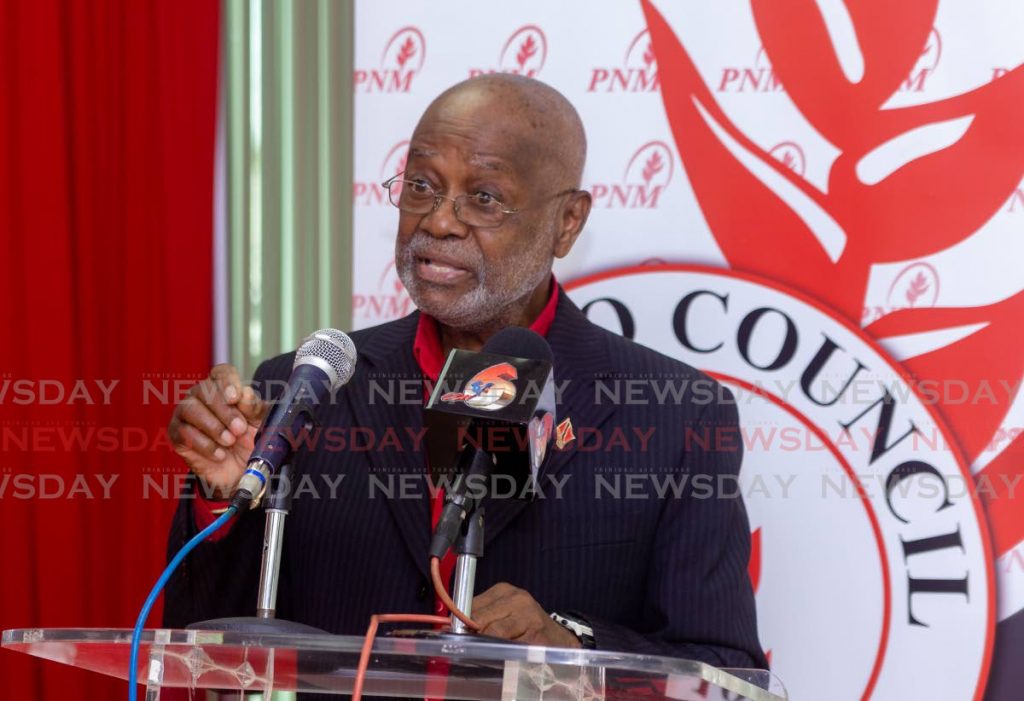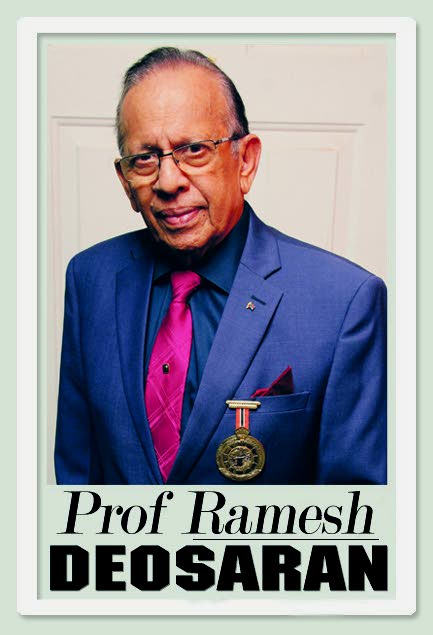How politics goes high and low

Every item on the inauguration agenda for President Joseph Biden was designed to project a high-grounded “hope for the future” vision and an “America united.”
Regarding the low-grounded THA elections, one of the hot spots was the skirmish between Tobago PNM Council chairman Stanford Callender and economist Dr Vanus James, a matter considered later.
From the podium, former president Donald Trump’s name was not called; neither were any of his “successes.” In fact, he did not attend. Quite noticeably though, former vice president Mike Pence did, in a grudge-free, statesman-like manner.
Furthermore, as president of the US Senate he stoutly refused Republican pressure to stop the impeachment vote against Trump. The Constitution doesn’t allow me to do this, he courageously replied. And he was deemed “a traitor.” Trump was fuming. The pro-Trump crowd that smashed into the Capitol Hill building went looking for him.
Pence’s inauguration appearance showed that notwithstanding the divisive nature of democratic party politics, there are opportunities for politicians to override the artificial barriers for the national good. Pence, once a supremely loyal vice president to Trump, obeyed his conscience rather than party loyalty
Biden’s proposed cabinet, rich in diversity and independent thinking, contains Appeal Court judge Merrick Garland. Presenting Garland publicly, Biden told him: “Remember, you are not my attorney general, you are not working for me, you are the people’s attorney general.” Biden was over-riding the narrow, self-serving barrier – another inspiring high-ground example of building public confidence in public institutions.
And of course, what better example than Biden’s choice of Senator Kamala Devi Harris as vice president? Harris stoutly criticised Biden during the Democratic presidential preliminaries. Last Wednesday’s inauguration served as a corrective mechanism.
The very next day, however, the Democratic House of Representatives Speaker, the feisty Nancy Pelosi, declared further war on Trump, insisting that the senate, with Vice President Kamala Harris presiding, quickly hold the impeachment trial for Trump. Should Harris allow this, it would weaken Biden's call for “American unity” and naturally undermine Biden’s quest for bipartisan support in and out of the US Congress.
Now many Tobagonian politicians are increasingly articulating psychological and political distancing from Trinidad, making it more and more appear as if political independence (with its own funding) is a natural outcome. Historically troubled and economically depressed, Tobago already has an overweight, multi-layered administrative structure for its 60,000 residents. The increasing number of questionable expenditures helps provoke the secession issue, as is evident in the present election campaign.
Development economist Dr Vanus James pointed to “over 40 irregularities” in THA spending, according to the Auditor General’s report. James and other Progressive Democratic Patriots (PDP), using executive committee notes, etc, also complained about “missing money” from Tobago’s “$4 million" zipline project. Obviously upset, Callender said James “looked like a vagrant” when standing next to Farley Augustine (PDP deputy leader).
Many Tobagonians reportedly objected to Callender’s remarks. Callender, refusing to apologise, said he did not call James “a vagrant,” he merely said he looked like a vagrant.
Whatever, and knowing Callender as an MP from when we were both in Parliament, this was a disappointing remark. Now we all know during our political campaigns, loose talk and often insults are made, much to the crowd’s delight. Regrettably, though. So much so that several editorials and codes of political conduct have been presented to help sanitise this “bad example” tendency.
Knowing Callender as I do, he has not been ruthlessly ambitious, loud-mouthed or unmannerly. It would do him well to apologise to Dr James, who with his regular comments on Tobago governance, is really not the enemy. Tobago’s standard of governance needs improving, and given its economic weakness, its residents and politicians should be extremely cautious in characterising the United National Congress (UNC) as an “ethnic enemy.”
As Tobago’s analyst Anselm Richards wisely said, “the race-baiting in Tobago politics, as happened in the 2013 THA elections must stop.” Referring to former THA member Hilton Sandy’s infamous “Calcutta ship coming” remarks, and the current “Kamla and Duke” posters on utility poles, Richards sees this practice as instilling “fear of another race.”
Indeed, this is taking Tobago and its economy down a dangerous path. Increasing number of Indians on social media are threatening “not to visit Tobago.” A pity the PNM leadership provides no helpful comment yet.


Comments
"How politics goes high and low"